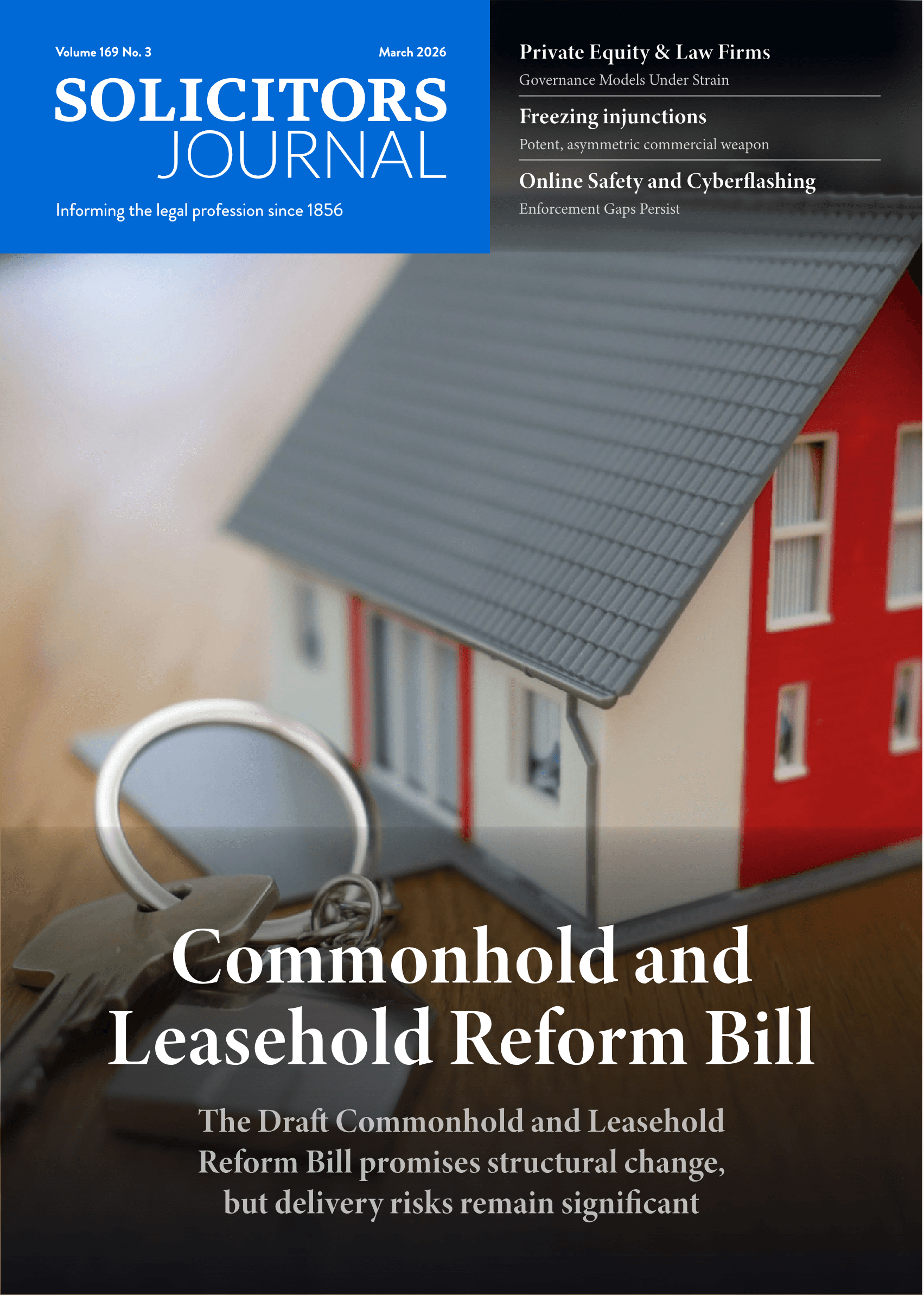Ready to engage

The legal profession must continue to find new ways to innovate and adapt, to meet the many challenges – and opportunities – that lie ahead, says Peter Lodder QC
As I come to the final few months of my year-long term as chairman of the Bar, it is natural to reflect on the state of the profession and to look to the future. The legal landscape is passing through such a frenetic period of change that, in the eye of the hurricane, it is not always easy to step back and achieve some perspective. And yet in the midst of the myriad reforms, proposals and initiatives which are instigated by or aimed at the legal profession, there are a number of trends that have emerged.
The financial context
We are operating in an environment of austerity. The full impact of the fiscal crisis is perhaps still not completely clear. The LASPO (Legal Aid, Sentencing and Punishment of Offenders) Bill proposals, and recently laid funding orders, introduce deep cuts to legal aid which threaten to send shockwaves through publicly funded practice for years to come. Unamended, their full effects may change the types of service that lawyers are able to provide for a generation or more. Make no mistake: vulnerable people will lose out. Once removed, areas of practice that are almost exclusively publicly funded, such as social welfare law, may never return into scope.
The future for legal aid looks bleak. The numbers of litigants in person will rise when access to professional advice is removed. The courts will become clogged and progress will be slow. Many practitioners will be driven out of publicly funded work and the diversity of the profession (and in turn the judiciary) will diminish. Justice will suffer.
This bleak future need not be the reality. The Bar Council and other organisations have put forward many savings proposals, which have the capacity to save hundreds of millions of pounds. From unfreezing defendants' assets to meet their own legal costs, through to compulsory insurance for corporate directors and officers, there are alternatives. Our challenge remains to engage the government, and other opinion formers, to make it realise the folly of its current approach. We are doing everything in our power to achieve that aim. Let us hope, in the public interest and in the interests of justice, that we receive a fair hearing.
Regulation and competition
Another issue we face is greater regulatory scrutiny of our work, particularly in advocacy. Both criminal barristers and solicitor advocates will be well aware of QASA, which looks set to come into operation next year. The Bar is in favour of transparent and effective regulation in the public interest. We are proud of the quality of our advocacy and have nothing to fear from judicial assessment. The cost and effectiveness of the scheme is, of course, of great importance, as criminal work diminishes and rates of payment continue to fall. It must be proportionate to the environment in which we operate, but the principles of scrutiny and regulation are ones from which we cannot shy away.
Looking ahead, it is clear that the government's steps to slash rates of pay for criminal and family legal aid are not the full extent of its ambitions. In a letter sent at the end of September, I received a very clear indication from the Lord Chancellor about the government's commitment to establishing 'new ways of working'. The letter, which can be found on the Bar Council's website, is peppered with references to price competition for criminal legal services. Whether or not this is something which finds favour with barristers or solicitors may prove to be an irrelevance; the government's thinking has never been expressed so clearly.
With a legal services competition consultation in the pipeline, it is clear that criminal practitioners operating at the Bar or in law firms will be operating in a starkly different environment. We will have to find ways to innovate and adapt and, most importantly, to survive. Where criminal practice leads, family often follows. We must ensure that we remain on the front foot as far as we possibly can. We provide a vital public service and we will not withdraw from it without a fight.
Setting standards
The silver lining in the depths of recession is the huge and continuing commercial success of the legal services sector, which is now enjoying vocal and deserved support from government. The quality of the UK's legal services sector is second to none. The Ministry of Justice's international action plan, and 'Unlocking disputes', the Bar Council, Law Society and TheCityUK-led campaign to promote London as a world-leading dispute resolution centre, present many opportunities for the legal profession to expand and enhance its offering. The Bar has been working hard to establish stronger and better relationships with the City, and these initiatives will be vital aspects of role in helping to restore growth to the UK economy.
It is important to close on a more positive aspect of the current landscape. For all that one can take a negative view, and there are undoubtedly hard times ahead, both barristers and solicitors have shown themselves time and again to be resilient and resourceful. They operate first and foremost in the public interest. As we approach the tenth Annual National Pro Bono Week, there is no better example of the valuable role the legal profession plays in society. I am optimistic that as tough as the challenges ahead may be, the profession will rise to them once again.

